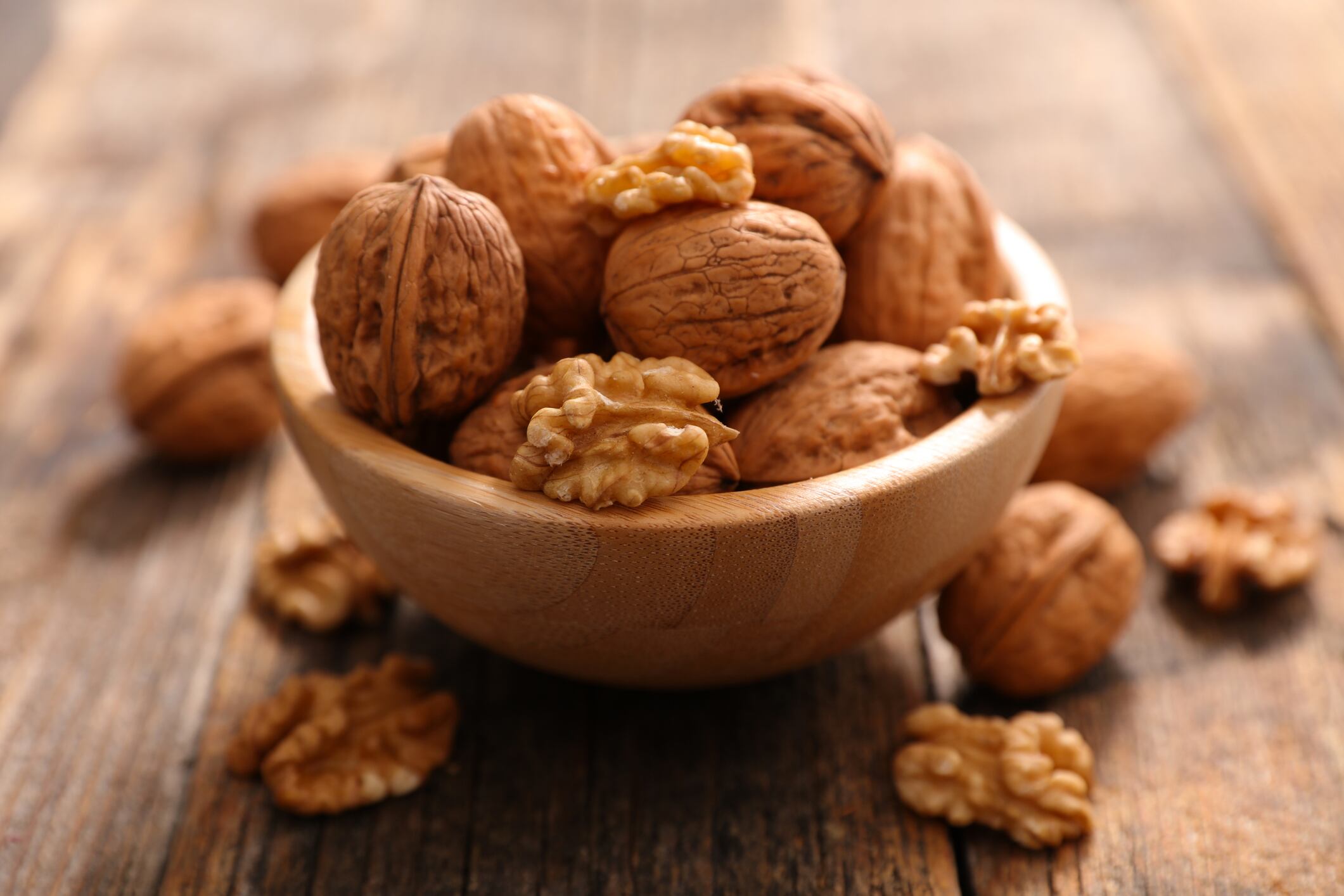In a randomised, controlled trial, researchers found that eating walnuts daily as part of a healthy diet was associated with increases in gut bacteria associated with improvements in some risk factors for heart disease. The study was funded by the California Walnut Commission.
Previous research has shown that walnuts, combined with a diet low in saturated fats, may have heart-healthy benefits. For example, previous work demonstrated that eating whole walnuts daily lowers cholesterol levels and blood pressure.
In the recent study, published in the Journal of Nutrition, researchers recruited 42 participants with overweight or obesity aged 30 to 65. Before the study began, participants were placed on an average American diet for two weeks.
After this "run-in" diet, the participants were randomly assigned to one of three study diets, all of which included less saturated fat than the run-in diet. The diets included one that incorporated whole walnuts, one that included the same amount of alpha-linolenic acid (ALA) and polyunsaturated fatty acids without walnuts, and one that partially substituted oleic acid for the same amount of ALA found in walnuts, without any walnuts.
In all three diets, walnuts or vegetable oils replaced saturated fat, and all participants followed each diet for six weeks with a break between diet periods.
To analyse the bacteria in the gastrointestinal tract, the researchers collected faecal samples 72 hours before the participants finished the run-in diet and each of the three study diet periods.
They found that the walnut diet enriched a number of gut bacteria that have been associated with health benefits in the past, such as Roseburia, which has been associated with protection of the gut lining.
The researchers also saw an increase in Eubacteria eligens and Butyricicoccus.
Eubacterium eligens was inversely associated with changes in several different measures of blood pressure, suggesting that greater numbers of Eubacterium eligens was associated with greater reductions in those risk factors.
Additionally, greater numbers of Lachnospiraceae were associated with greater reductions in blood pressure, total cholesterol, and non-HDL cholesterol. There were no significant correlations between enriched bacteria and heart-disease risk factors after the other two diets.
Regina Lamendella, associate professor of biology at Juniata College, said: "Foods like whole walnuts provide a diverse array of substrates -- like fatty acids, fiber and bioactive compounds -- for our gut microbiomes to feed on.
"In turn, this can help generate beneficial metabolites and other products for our bodies."
Penny Kris-Etherton, distinguished professor of nutrition at Penn State, added that future research can continue to investigate how walnuts affect the microbiome and other elements of health.
"The findings add to what we know about the health benefits of walnuts, this time moving toward their effects on gut health.
"The study gives us clues that nuts may change gut health, and now we're interested in expanding that and looking into how it may affect blood sugar levels."
Source: The Journal of Nutrition
Tindall. A. M., et al
“Walnuts and Vegetable Oils Containing Oleic Acid Differentially Affect the Gut Microbiota and Associations with Cardiovascular Risk Factors: Follow-up of a Randomized, Controlled, Feeding Trial in Adults at Risk for Cardiovascular Disease.”
DOI: 10.1093/jn/nxz289


